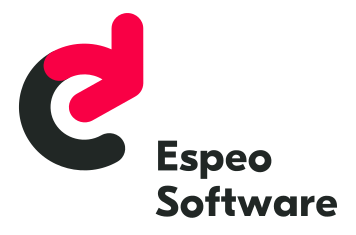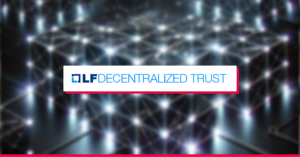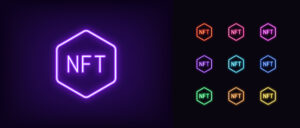For every group of optimistic fans, there’s an equal number of people deeply skeptical towards blockchain, scared off by uncertainty and weak ICOs. “There are a lot of bad apples in the ecosystem”, as Marc Taverner put it during Unlock Blockchain, an event in Dubai I’ve attended in January. I’d like to put a spotlight on a key panel discussion. It sparked some further consideration of what sort of blockchain challenges we’re facing. No fatalism, and no blind optimism: let’s be realistic about how to remedy the problems – and which blockchain business ideas can flourish.
1.Problems with understanding…
Considering the hype, it’s surprising there’s such a low level of understanding of what blockchain means in general. Hence the many videos and articles that offer to ‘explain blockchain to your grandma’. Your grandma can be excused for not being up to date on Hyperledger or mining. However, the panel’s experts mentioned that business people who want to enter the scene simply must be more informed. At the very least, they should rely on proven consultants who can get their blockchain business ideas to work.
…how to profit from blockchain technology uses
Yet, the most problematic part is convincing established entrepreneurs or companies that blockchain can help them grow. They’re right to ask tough questions. What are the end benefits going to be? They’re skeptical as they often look beyond the marketing bonus of jumping on the ‘hot technology’ bandwagon. They want to know what the ROI of engaging in blockchain initiatives is going to be. “How do we make blockchain pay?” sums it up well, and according to a Deloitte report, is actually one of the questions ‘every business leader should ask’. I’m definitely going to follow up on the topic on this blog. In the meantime, here are some good examples of interesting blockchain businesses.
Panel 8 – Blockchain Challenges – What Needs to Be Done – photo by Unlock Blockchain
2.Bad rep of some blockchain business ideas
“Currently, token-based businesses are overvalued at the cost of really sound, more complex blockchain technology uses, and those token projects give the rest a bad rep”, according to Paolo Tasca. ICOs have had some bad press recently, but it’s worth mentioning that this concerns scammy Initial Coin Offerings that offer little more than a get-rich-quick model for the founders. ICOs are still a legitimate way to get people involved – we know, we’ve done the development for many ourselves. But the panelists linked the problem to another challenge: there is no established business model for blockchain-based projects.
Blockchain business problems with legitimacy
While a business model may still emerge, the confusion and poor quality of certain offerings poses a problem at the moment. Paolo proposed a “call for an alliance between startups” to come up with a better plan for using blockchain, and the purposeful use of tokens. The goal should be to produce meaningful products, and to check the legitimacy of certain propositions. It’s an ambitious idea, but it’s not impossible. As I’ve discovered in Zug and Dubai, there are communities building around blockchain that value original, problem-solving blockchain business ideas.
Me (with Espeo’s CEO) talking to dr Aisha Bin Bishr of Smart Cities – a great initiative bringing many blockchainers and innovators together – photo by Unlock Blockchain
3.Regulation and ’experts’
According to Ismail Malik, then “there are the regulators, the abstract lawyers who try to mold blockchain into existing (and perhaps obsolete) categories”. This has been a pain point for many Internet commenters, whether they’re CTOs on Linkedin or part of the #HODL team on Reddit. In some countries, ICOs have openly been banned, but many are on the fence. This creates a climate of uncertainty for many businesses. Blockchain can’t easily be made to fit into a category.
While legal ‘experts’ abound, not all advice is worth the same money. As Marc Taverner noted, “the problem is that there’s a feeling that the industry is full of paid consultants”. While there’s nothing wrong with advisors who know their stuff, one must be very careful in choosing your ‘experts’. The best bet is to trust solid recommendations, or your own research regarding someone’s experience. Real experts have a history of working on valuable projects.
4.Shortage of devs
There’s still a lot of work to be done. “There are simply not enough developers really familiar with the ins and outs of blockchain technology”, to quote Paolo Tasca. It’s difficult to find seasoned devs in this niche, as it’s still a relatively new technology. In many ways, people are still learning as they go. It might be somewhat obvious, but in our case, we’ve found that continuous education and practice is the way to go for future blockchain developers. While we have a core of senior developers who have completed several ICOs and blockchain-based platform projects, we’re putting strong emphasis on (re)training the people we’ve learned to trust over the years.
Educate!
I’ve always found the sharing of knowledge and openness to new concepts as the most admirable aspects of the tech world. So, we believe it’s good to give back, hence our ideas: a free tutorial, or a free tech meetup. I hope these will be steps in the right direction. That, and of course the fact that we’re always open to reviewing blockchain projects.
5.Buzzword as a Service
Marc Taverner was strongly opposed to attaching blockchain as-a-buzzword to anything and everything (and companies and advisors taking advantage of this Buzzword as a Service model – BaaS?) just to increase the price of shares. There’s some real-life truth to the Dilbert cartoons that poke fun at those who only use the word without knowing what it means. And there’s this:
What’s more, Maksim Izmaylov gave probably the most tweetable quote of the panel: “blockchain isn’t there to just plug into existing tech of companies: it’s a tectonic shift”. Blockchain can solve problems other technologies can’t, period. Why use blockchain if a regular database can do the same job?
Blockchain is appealing for several good reasons. Companies and founders should dive deeper into what these reasons – decentralization, security, immutability, trustlessness – could mean for them. As always, the best businesses solve real problems. Buzzword-based businesses aren’t likely to survive. As Maksim stated in our conversation later, “if blockchain in a project is just used for payments or for the sake of looking ”innovative”, then it’s wrong”.
6.No concept of social or non-commercial value
Though I’ve mentioned token-based businesses should have a clearer plan of action (and a more solid plan to make money), not every token needs to have market value. After all, it’s frequently predicted that ‘blockchain will change the world’. That’s a quote from Forbes, Fortune, Hackernoon, Inc dot com – the list goes on. This doesn’t only pertain to dismantling the rotten banking world as we know it (sarcasm, of course). Blockchain can and has been used for non-commercial and community causes, such as charities.
Marc proposed to look for other kinds of gains or returns that have a more social value, not just financial tokens. These can include, for example, plans for safer voting systems. Maksim himself prefers to focus on blockchain technology uses that bridge social inequalities.
Blockchain challenges – remedies
These blockchain challenges may seem a bit daunting at first. However, being aware of them at this point will mean more benefits in the long run. What’s more, these can largely be overcome once those involved get more educated. As Maksim wrote to me later, “if you have a good understanding of blockchain and how it’s different from the other technologies, the majority of the blockchain challenges that we talked about just go away”. What’s more, it’s encouraging to see the ecosystem grow and the ICO market mature. Entrepreneurs are coming up with better blockchain business ideas. Additionally, developers are more and more curious to probe the depths of blockchain. Let’s see what the future brings.




